Meet Singapore’s Patch Adams who bring cheer to patients
Various performers are transforming hospital wards, injecting cheer and song to the lives of patients there.
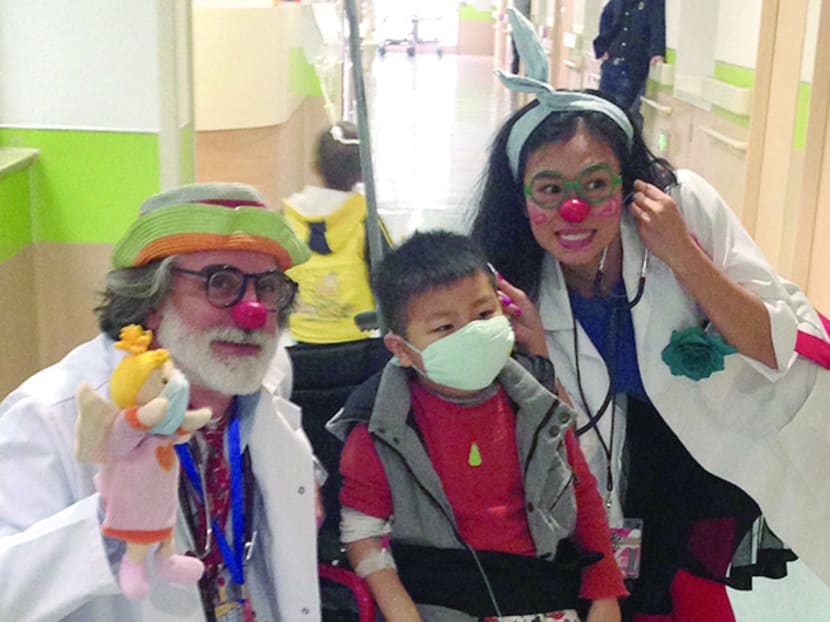
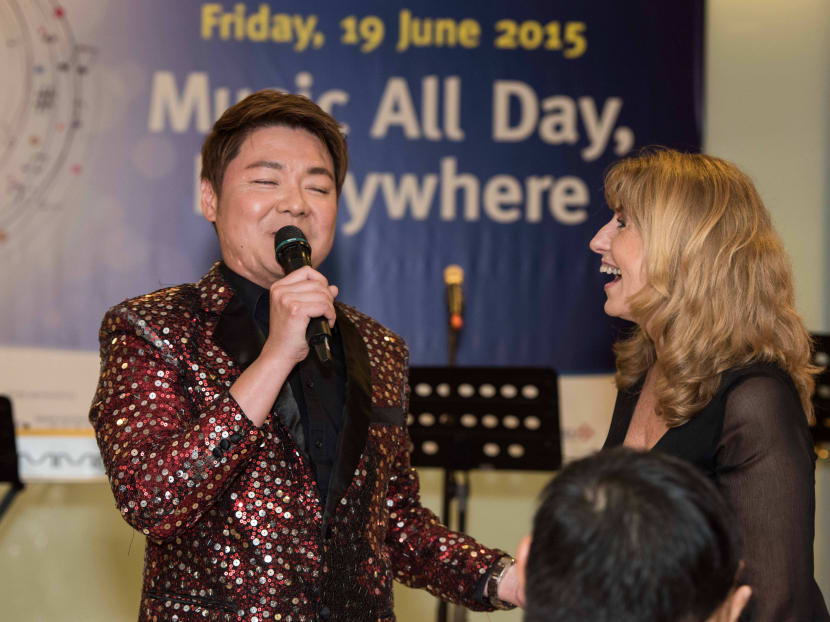
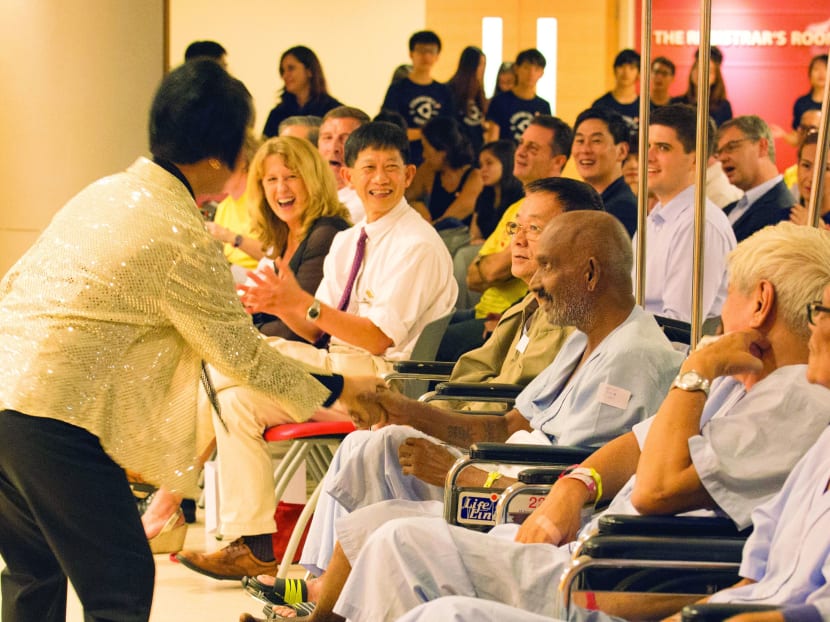
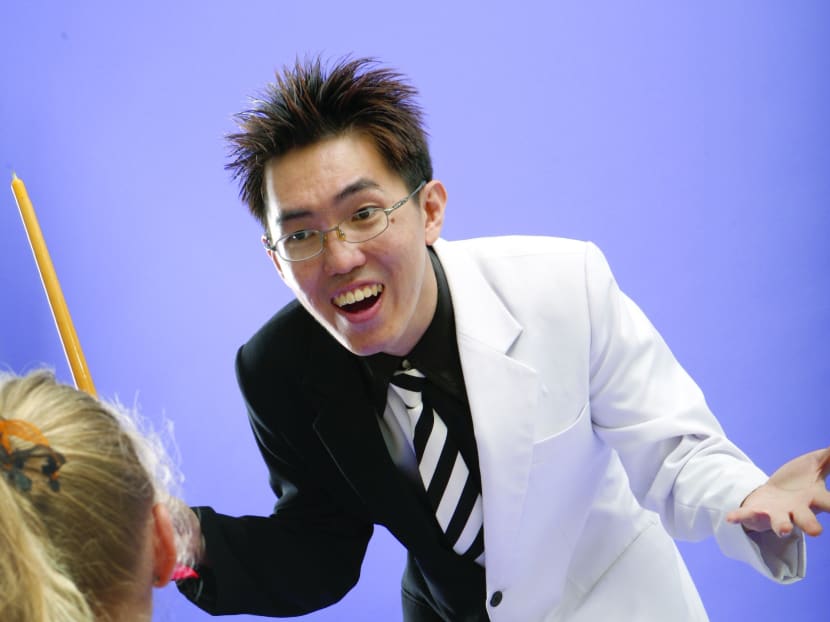
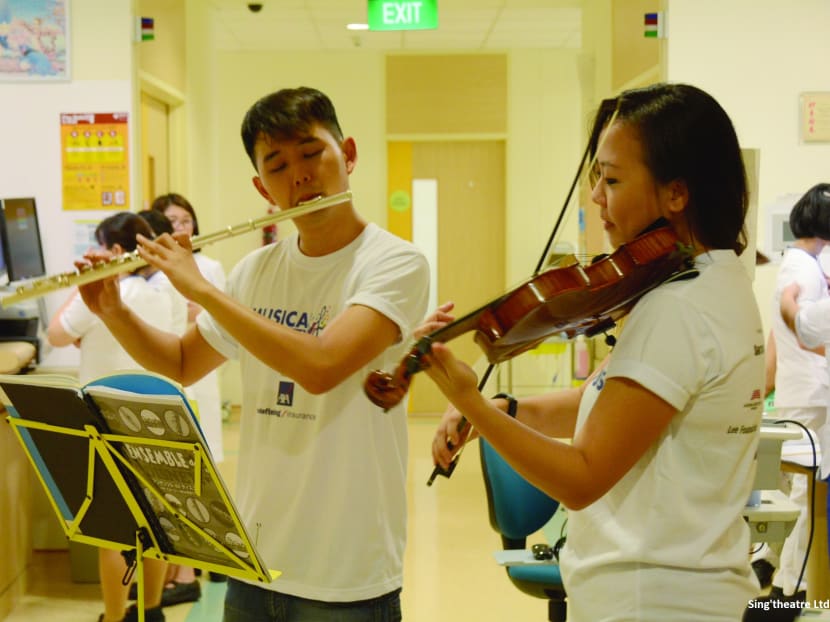
Various performers are transforming hospital wards, injecting cheer and song to the lives of patients there.
For example, while Sing’Theatre is a company known for its lush musicals inspired by French cultural heritage, it also brings live music to hospitals, co-presenting the annual MusicFest@SGH, which sees diverse musicians performing at different areas in Singapore General Hospital; and producing Musical Rendezvous@NUS, where musicians take their tunes into the National University Hospital wards every Wednesday.
Nathalie Ribette, Sing’Theatre’s founder/director, explained that this initiative first started in 2012. “The idea of performing for patients came as (stage actress and singer) Emma Yong passed away from cancer. She was my friend and muse, and when she passed I felt like stopping everything,” said Ribette. “But I thought, if I can create something good from this seeming hopelessness, perhaps I will be able to cope. So we began bringing music — something Emma always loved — to people who were sick.”
HEALING WITH FEEL-GOOD VIBES
MusicFest has grown in scale, with this fourth edition seeing up to 500 performers and co-ordinators involved. But the heart of the massive initiative continues to be forging personal connections between performers, patients and their families, who might otherwise feel alone.
“In the wards, the musicians adjust their songs according to the patients: Are they young and likely to enjoy something upbeat and happy, or older and possibly looking for something more nostalgic to relive emotions from the past? You cannot always predict what they’ll respond to though,” explained Ribette.
“Once I was performing a French song, and an old Indian female patient gave me a big smile. I wondered whether she understood, but later she came up to me, saying, ‘your song reminded me of my honeymoon in Paris years ago’. She hugged me, and we both cried. Music can create moments of sharing between people that you wouldn’t think have anything in common, and draw people’s focus away from their own sickness and suffering. When family members of the patients don’t know what to say to their sick mother, child or brother anymore, music gives them the opportunity to share a moment.”
Meanwhile, Ghazali Muzakir is a qualified medical clown with Clown Doctors Singapore, visiting patients regularly to provide laughter and, hopefully, empowerment.
“Clowns are silly and eager to please, so patients often feel comfortable asking us to do all kinds of things. That’s usually good, because when you’re sick you might feel like the lowest of the low, and when you get to boss someone around a bit, it’s empowering. Clowning can also help through the power of imagination: I remember this elderly patient that the nurses were trying to persuade to walk to the dinner table. She was saying, ‘I can’t, I’m so weak’. Then my clown partner and I interacted with her, doing this grand action of imbuing her with power from all around her. She didn’t just stand up — she laughed and danced out of bed.”
Wee Kien Meng, also known as internationally celebrated magician Mr Bottle, shares this philosophy of empowerment through performance. “In 2004, I created the Healing of Magic programme to teach magic tricks to patients of various ages, showing them they can still do amazing things despite illness. I also perform magic to patients, and usually execute the tricks only after telling the patients I need to borrow some magic from them. I say, ‘I bet you didn’t know: Everyone has some magic in them.’ It’s a message of confidence and hope.”
SPECIAL REQUIREMENTS
For these performances in the wards, performers need to be very healthy — free even of the flu — before entering the wards because patients might have compromised immune systems. Even performance props need to be sterilised. Volumes are generally kept low. Sing’Theatre’s ward-bound musicians eschew tunes requiring drums or heavy bass in order not to disturb patients at rest.
It is also crucial that the performers know how to engage patients with empathy. Said Ribette: “When casting for Musicfest, I realised technical expertise is not that important here. It’s more important that the musicians can communicate and empathise with others. We hired some artists who might not qualify to be in a stage musical, but are wonderful with people, bringing joy just by their smiles. If you are professional and cold, it doesn’t work.”
Ghazali agrees, adding: “I have been an actor for about 10 years now, but that’s very different from what’s needed for medical clowning, where you don’t just recreate a prepared performance. We learn some standard gags that we can use, yes, but essentially every interaction is an improvised conversation between the clowns and the patient, changing depending on what they need. Medical clowns need to be completely vulnerable and open, and that can be very scary.”
The unpredictability of patient-performer interactions is exacerbated by the fact that patients do not always welcome them, whether it is due to exhaustion, self-consciousness, or other reasons. Accordingly, performers work with nurses who brief them on which patients might best benefit. “My strategy is not to force anybody to engage with the performance — if one patient is resistant, I might perform for his neighbour and let the first patient peek as he chooses,” said Wee. “I also follow the nurses’ guidance about patients’ physical and emotional limits.”
Yet Ghazali testifies to having pleasantly surprised some nurses. “A nurse might advise you not to engage with someone who seems like they prefer to be left alone. But sometimes these very patients are the ones who turn out really happy to talk to you, and the nurses will be like, ‘How did you do it, why is she so relaxed with you?’ I think patients let down their guard around us because they see us as children almost,” he said. “Yes, it’s easier to focus on patients who are already cheerful and receptive, but our job is not to engage only people who don’t need cheering up.”
With positive responses from patients, the variety of performances in hospitals is set to increase. Ribette is exploring bringing puppetry to child patients, with a programme scheduled to begin in March next year. “Every patient can be very different, especially in today’s multicultural world. But art is a great medium to reach out to those trapped in a world of sickness, in ways that transcend language.”
Musicfest@SGH will take place at the Singapore General Hospital on Oct 28, 2016.





